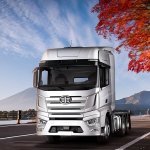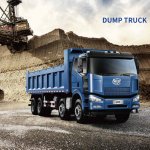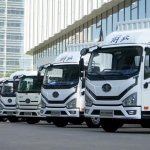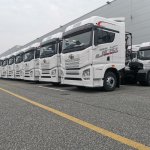Build user portraits based on actual needs
Before putting an elephant in the refrigerator, we must first understand what the user needs are. As we all know, the user scenarios of commercial vehicles are complex. The same model will have very different operating conditions in plains and mountainous areas, but the user's demand for efficient logistics is the same. This became the starting point of the J7 Creative Edition. The demand was put in the front at the beginning of the design, and "efficient logistics" became the core positioning. It is understood that the user portrait of the J7 Creative Edition has distinct characteristics, the most important of which is the high demand for "efficient logistics". In addition to highway logistics group customers such as "Three Links and One Reach" and SF Express, the J7 Creative Edition also has a large number of small and medium-sized enterprise customers, distributed in major logistics distribution centers such as Shanghai, Henan, Guangdong, and Yunnan. "They are small in size, but large in number, occupying a major share of the entire logistics market. They own a few vehicles at least, and hundreds of vehicles at most. They are mainly involved in several major sectors such as LTL cargo, express logistics, and cold chain transportation." Project OE (operation engineers) Zheng Zepo and Liu Hongyu introduced that overall, these customers have several major attributes. First, they have a stable supply of goods and can ensure stable operations; second, they have high requirements for timeliness, such as flowers in Yunnan and seafood in Guangdong that require cold chain transportation; third, they have high requirements for vehicle quality. These users can travel 20,000 to 25,000 kilometers per month, or even more, reaching 200,000 to 400,000 kilometers a year, and they attach great importance to the reliability and safety of vehicles. "Many users have reported that it is becoming increasingly difficult to recruit drivers. Therefore, strengthening the intelligence and comfort of vehicles has also become a top priority." Liu Huishen said that commercial vehicles have to be calculated for the entire life cycle. In addition to the use of the vehicle itself, subsequent maintenance services are also very important to users. In addition, attention to energy saving has always been the core demand of FAW Jiefang users. "From the development stage, our focus is on demand realization." Liu Huishen has repeatedly emphasized that with the changes in the macroeconomic environment and the iteration of user needs, every individual in the era is faced with the problem of structural adjustment and transformation without exception. To solve this problem, FAW Jiefang uses scientific methods to develop endogenous power, coordinate and coordinate from multiple dimensions of breadth, depth, internal and external, further refine customer needs, systematically decompose and gradually implement them. For example, in order to achieve the goal of energy saving, the J7 pioneering version introduces the Internet of Vehicles to analyze vehicle online data, and analyzes fuel consumption data in plains, highways, mountainous areas, and high-cold areas through intelligent technology, insight into vehicle characteristics, and targeted optimization. During the entire project development process, the relevant team of FAW Jiefang maintained close contact with customers in East China, Central China and Western China, and made in-depth visits. They have a deep understanding of the operating conditions of the entire freight market. "As the economy enters a stage of high-quality development, the freight market is undergoing a major reshuffle, from quantitative change to qualitative change. The most obvious change is that users have less demand for the number of operating vehicles, but higher requirements for the quality of vehicles." PQA (product quality assurance) Yao Jinghua lamented that a 100,000 yuan vehicle used to create 200,000 yuan in value, but now it is required to create 300,000 yuan or even 400,000 yuan in value. Changes in user demand require that products must shift to high-quality, high-value positioning. "Volume price" has no future, "volume value" is the right way, and reliable products will naturally attract more high-quality users. In the view of Liu Huishen and others, products and customers are actually a two-way selection process. This is a long-term process that must adhere to healthy development.
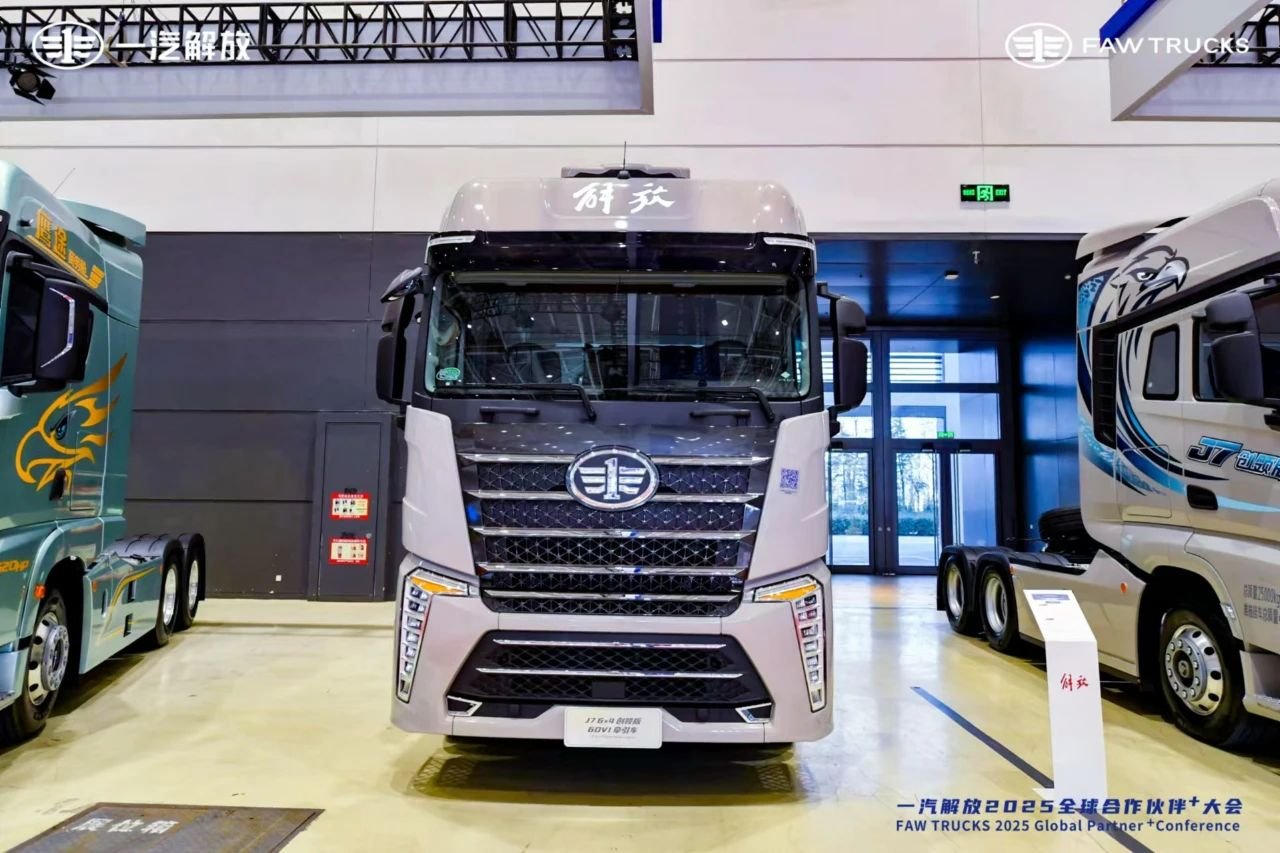 Dynamic demand drives high-quality supply
Dynamic demand drives high-quality supply
By collecting and sorting out the needs, Liu Huishen's team found that most users' needs for vehicles are mainly concentrated in safety, reliability, energy saving, intelligence, comfort and high-end. Taking demand as the starting point, under the full-process organizational construction, the J7 pioneering version has been continuously polished and officially unveiled on July 16, 2024. "When the first J7 pioneering version was unveiled, we organized a large number of users and dealers to the scene and invited them to test the results. Users repeatedly observed the new car, test-drove it, and gave many pertinent suggestions and comments." Liu Huishen said that for FAW Jiefang, the launch of the product is the first step. Only by constantly understanding user needs and pain points and continuously optimizing can the competitiveness of the product and the vitality of the enterprise be guaranteed. Today, the J7 pioneering version not only has many supporters in the domestic market, but also the expansion of overseas markets is in full swing. When the J7 pioneering version was released, many foreign users also came to the scene and praised the new product. FAW Jiefang has always had its own understanding of jointly building the "Belt and Road" initiative and expanding the space for win-win development. In recent years, changes in the international situation have given new opportunities to the freight logistics industry. As a new blue ocean, cross-border transportation has brought huge incremental space to the industry. As the cross-border transportation market grows, customer demand is also increasing, but Liu Huishen said that this business is not so easy to do. From the demand side, special properties such as extreme cold, extreme heat, high corrosion, and high ultraviolet rays have high requirements for the corrosion resistance and aging resistance of vehicle tires and braking systems. Low-temperature starting and high-temperature cooling pose severe tests to the vehicle's lubrication system and cooling system. "From the product supply side, to ensure product reliability, we must rigorously consider every process detail to ensure that user needs are met." When it comes to changes in user needs, Liu Huishen's other more direct feeling is that it has become more specific and more scenario-based. In the interview, he reflected: "In the past, from the perspective of a car company, we mainly considered overall aspects such as energy conservation and vehicle reliability, and paid less attention to some details. But now, after strengthening user feedback and communication, many users will put forward some smaller but more practical functional requirements based on their own usage habits or environment, which, if adopted, will also help improve their sense of happiness in use." FAW Jiefang takes every suggestion made by the user seriously to make the needs more practical, the products more comprehensive, and the use more practical. For example, in response to energy-saving needs, in addition to product design, FAW Jiefang also proposed solutions for user driving habits. Liu Huishen said: "The impact of individual behavior on fuel consumption cannot be ignored. Different drivers have different driving styles. Some people step on the accelerator deeply, while others step on it shallowly, resulting in a large difference in fuel consumption. Based on this consideration, on the one hand, we organize users to conduct driving habit training; on the other hand, the J7 pioneering version optimizes the throttle design through software, quantitatively develops the Super E intelligent assistance system, automatically senses the vehicle mass, driving slope, speed and other parameters, and assists users to make the vehicle run under the most economical working conditions. At the same time, the vehicle is also equipped with an analysis and evaluation system for the driver's driving behavior, which scores the number of brakes, throttle opening, driving prediction and other dimensions during driving, and further standardizes the driver's driving behavior." FAW Jiefang wants to become the "first in China and world-class" green and intelligent transportation solution provider, which is by no means an empty talk. Pay attention to the top users and do not ignore the waist users. From the service perspective, FAW Jiefang believes that mid-level users need more systematic services. "These small and medium-sized logistics companies, unlike big customers such as 'Three Links and One Delivery', have sufficient capital flow and resources. Their funds must be spent on the right things, and they do not have enough capacity to build independent service stations, but they also have needs, which is an opportunity for Jiefang." Liu Huishen said. It is understood that FAW Jiefang has created a comprehensive solution for this type of users based on a full-service strategy, including auto finance, driving training, after-sales maintenance, roadside assistance, and used car processing.
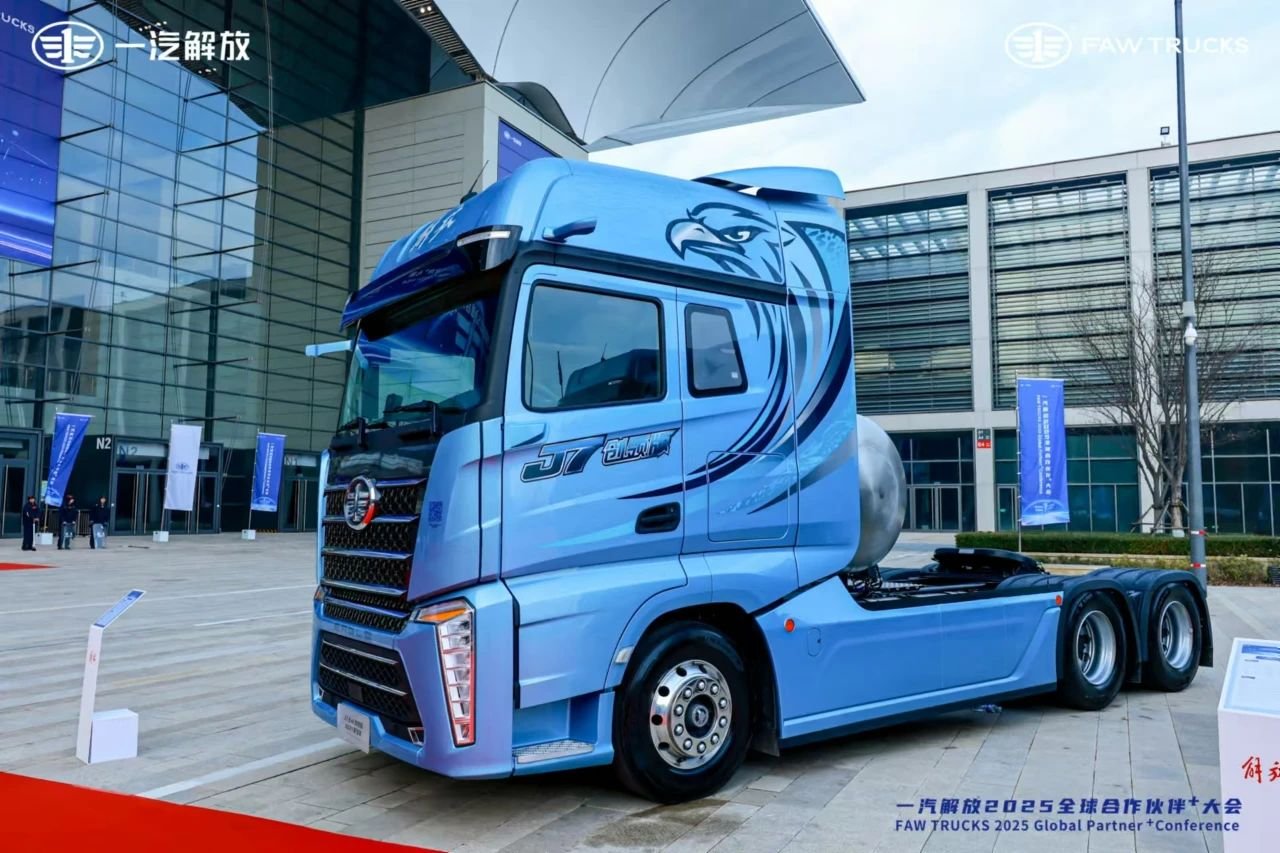 Today, driven by economic system reform, the whole country is striving to open up a new world of reform and development. FAW Jiefang has both clear ideological guidance and systematic strategic planning. "In the past, the production of Jiefang models followed a fixed logic. From top to bottom, FAW Jiefang's R&D department came up with a design plan, which was then implemented layer by layer and finally reached the user end. But with the development of the market environment, we found that this linear logic is not feasible. On the one hand, user needs are showing a trend of diversification. On the other hand, in order to respond in a timely manner, establishing a user feedback mechanism has become an indispensable link." Product management representative Liu Qi said. Paying attention to systematicity, integrity, and synergy is an inherent requirement for comprehensively deepening reform, and it is also an important method to promote reform. FAW Jiefang, which is well aware of this, has embarked on a more pragmatic and progressive reform approach. "The development before liberation was successful, but it was more inclined towards productization. After introducing IPD, we put user needs in the front and developed two main lines. One is user satisfaction, which is the most core issue. We introduced it as the input, quantified the user needs in each scenario into engineering indicators, and then used engineering language to explain satisfaction, so as to achieve a closed loop of user needs and product development. The second is commercial success, and the product must be cost-effective." Liu Huishen said that the R&D team of the J7 Leading Edition conducted detailed discussions around the main line of user needs, guided by user orientation, quantified it into a single indicator for each link, and jointly achieved the overall goal under the collaborative development of the whole vehicle. "For example, a product has proposed a goal of saving 15% energy since the planning stage. It cannot be solved only by engine technology, but also by combining user driving habits and vehicle performance optimization... In this way, a big goal is broken down into countless small goals, more people are involved, and it is better achieved." Facts have proved that in this way, the fuel consumption of the J7 Leading Edition has excellent performance, with an actual fuel consumption of 25.85 liters per 100 kilometers, which is at the leading level in the industry. For a national enterprise with a history of more than 70 years, only continuous reform can bring new impetus, and only continuous innovation can bring endless vitality. The launch of the J7 pioneering version is not a self-innovation of FAW Jiefang. As a production tool, the user needs of commercial vehicles are different from those of passenger cars. Compared with personality and beauty, truck users are more concerned about its practical features such as safety, reliability, comfort and cost performance. In the process of use, due to the differences in individual needs and the grasp of the actual situation, the understanding and implementation of user needs are becoming more and more important. Jiefang is increasingly aware that in order to produce products that are accepted and recognized by users, it is necessary to deeply understand user needs, put the needs in advance, and implement them on the design side. Nowadays, for any complex problem, the FAW Jiefang team can analyze it in detail. "Putting an elephant in the refrigerator", this seemingly absurd problem, has completely changed their way of thinking. The launch of the J7 pioneering version is only the first step. For FAW Jiefang, any platform product is vital. In the short term, as user needs change, products will continue to expand and upgrade, with the goal of being closer to user needs, running in small steps and iterating quickly. From a long-term perspective, delivery is only a preliminary link to users. In the future, insights into market conditions, user satisfaction surveys, continuous tracking of user needs, and valuable information obtained through real-time updates will help FAW Jiefang form a complete plan for each platform product, providing a solid basis for subsequent decision-making and long-term service.
Today, driven by economic system reform, the whole country is striving to open up a new world of reform and development. FAW Jiefang has both clear ideological guidance and systematic strategic planning. "In the past, the production of Jiefang models followed a fixed logic. From top to bottom, FAW Jiefang's R&D department came up with a design plan, which was then implemented layer by layer and finally reached the user end. But with the development of the market environment, we found that this linear logic is not feasible. On the one hand, user needs are showing a trend of diversification. On the other hand, in order to respond in a timely manner, establishing a user feedback mechanism has become an indispensable link." Product management representative Liu Qi said. Paying attention to systematicity, integrity, and synergy is an inherent requirement for comprehensively deepening reform, and it is also an important method to promote reform. FAW Jiefang, which is well aware of this, has embarked on a more pragmatic and progressive reform approach. "The development before liberation was successful, but it was more inclined towards productization. After introducing IPD, we put user needs in the front and developed two main lines. One is user satisfaction, which is the most core issue. We introduced it as the input, quantified the user needs in each scenario into engineering indicators, and then used engineering language to explain satisfaction, so as to achieve a closed loop of user needs and product development. The second is commercial success, and the product must be cost-effective." Liu Huishen said that the R&D team of the J7 Leading Edition conducted detailed discussions around the main line of user needs, guided by user orientation, quantified it into a single indicator for each link, and jointly achieved the overall goal under the collaborative development of the whole vehicle. "For example, a product has proposed a goal of saving 15% energy since the planning stage. It cannot be solved only by engine technology, but also by combining user driving habits and vehicle performance optimization... In this way, a big goal is broken down into countless small goals, more people are involved, and it is better achieved." Facts have proved that in this way, the fuel consumption of the J7 Leading Edition has excellent performance, with an actual fuel consumption of 25.85 liters per 100 kilometers, which is at the leading level in the industry. For a national enterprise with a history of more than 70 years, only continuous reform can bring new impetus, and only continuous innovation can bring endless vitality. The launch of the J7 pioneering version is not a self-innovation of FAW Jiefang. As a production tool, the user needs of commercial vehicles are different from those of passenger cars. Compared with personality and beauty, truck users are more concerned about its practical features such as safety, reliability, comfort and cost performance. In the process of use, due to the differences in individual needs and the grasp of the actual situation, the understanding and implementation of user needs are becoming more and more important. Jiefang is increasingly aware that in order to produce products that are accepted and recognized by users, it is necessary to deeply understand user needs, put the needs in advance, and implement them on the design side. Nowadays, for any complex problem, the FAW Jiefang team can analyze it in detail. "Putting an elephant in the refrigerator", this seemingly absurd problem, has completely changed their way of thinking. The launch of the J7 pioneering version is only the first step. For FAW Jiefang, any platform product is vital. In the short term, as user needs change, products will continue to expand and upgrade, with the goal of being closer to user needs, running in small steps and iterating quickly. From a long-term perspective, delivery is only a preliminary link to users. In the future, insights into market conditions, user satisfaction surveys, continuous tracking of user needs, and valuable information obtained through real-time updates will help FAW Jiefang form a complete plan for each platform product, providing a solid basis for subsequent decision-making and long-term service.
Linda


